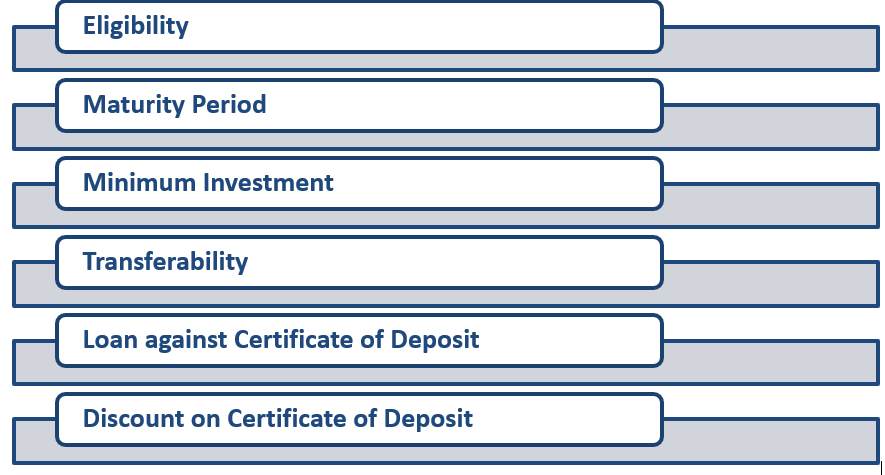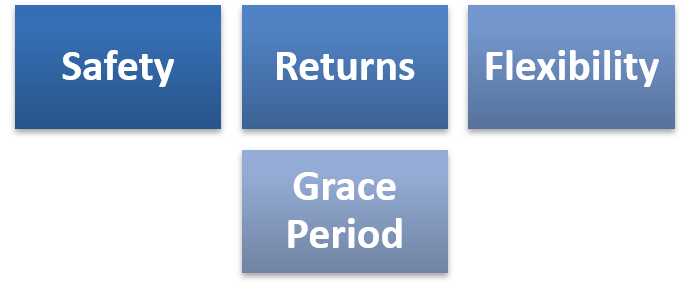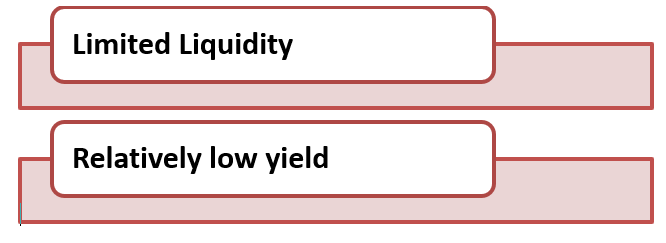What is a Certificate of Deposit (CD)?
A certificate of deposit (CD) refers to an instrument issued by financial institutions, it is a promissory note issued in the dematerialised form. Financial institutes make an agreement by issuing a certificate of deposit where an issuer has to pay interest on the depositor’s deposit and in return the issuer can use the deposit for a specific period of time.
Summary
- A certificate of deposit (CD) refers to an instrument issued by financial institutions, it is a promissory note issued in the dematerialized form.
- Certificate of deposit (CD) refers to an agreement or between the depositors and financial institution for a specific period of time with a certain amount on which depositor will get interest from the financial institutes (issuer).
Source: Copyright © 2021 Kalkine Media
Understanding Certificate of Deposit (CD)
Certificate of deposit (CD) refers to a deal between the depositors and financial institution for a specific period of time with a certain amount on which depositor will get interest from the issuer. Certificate of deposit (CD) is an instrument issued by a financial institute, such as banks, credit unions and creditworthiness institutes in a dematerialised form. Depositors can redeem the instrument at the time of the maturity of certificate of deposit.
Certificates of deposit (CD) are governed by the Federal Deposit Insurance Corporation and regulated by the Reserve Bank of India. When the certificate of deposit is about to mature, the depositor receives a seven-day timeperiod to decide about the matured amount. If the depositor does not withdraw the matured amount within the grace period of seven days, the maturity amount would be reinvested, though the depositors can also withdraw the amount after the grace period by paying penalty. Investment in certificate of deposit is ideal for those who look for secure investment with reasonable return.
Frequently Asked Questions (FAQs)
What are the features of a certificate of deposit?
Prominent features of a certificate of deposit are:

Source: Copyright © 2021 Kalkine Media
- Eligibility: As per the Reserve Bank of India (RBI), certificate of deposit (CD) can be issued by selective authorised banks and financial intuitions. The RBI regulates the investment of certificate of deposit and introduces various guidelines concerning the issue and purchase of certificate of deposit. According to the RBI guidelines, banks can issue certificate of deposit to pension funds, individuals, insurers, mutual funds and trusts.
- Maturity Period: Certificate of deposit is issued for a certain time period which is called maturity period. Maturity period of certificate of deposit is depends on the issuer. Commercial banks issue certificate of deposit with a maturity period ranging from seven days to one year. Other financial institutes issue certificate of deposit with maturity period of one year to three years.

- Minimum Investment: The certificate of deposit issued in the multiples of one lakh rupees. The certificate of deposit starts with minimum amount of one lakh rupee.
- Transferability: If a certificate of deposit is an electronic certificate, it can be transferred through delivery or endorsement. If the certificates are in demat account, they will be transferred as per the guidelines of the demat securities.
- Loan against Certificate of Deposit: There is no lock-in period in certificate of deposits. Therefore, banks do not prefer to grant loans against certificate of deposits, banks are not supposed to buy back certificate of deposits before their maturity.
- Discount on Certificate of Deposit: Banks, financial institutes and credit unions can issue certificate of deposit at a discount rate on face value or can issue on a floating rate basis. The floating rate is calculated on the market-based ratea.
What are the advantages of a certificate of deposit?
There are various advantages of certificate of deposit like:

Source: Copyright © 2021 Kalkine Media
- Safety
Investment in a certificate of deposit is considered more secure as they are issued by banks and financial institutes. In comparison to stock market or debt funds, investors choose certificate of deposit if they look for reasonable return with secure investment.
- Returns
The certificates of deposits are issued with a certain rate throughout the period of investment. Investing in certificate of deposit for a long term provides a high return such as certificate of deposits issued by financial institutes for tenure of one year to three years. The certificate of deposit provides more return in the comparison of savings account.
- Flexibility
There is flexibility in the investment in certificate of deposit as an investor can select the duration and issue price of certificate of deposits according to their investment planning and objective. An investor has an option to choose lump sum, monthly, or annually payout at the time of maturity of the certificate of deposit.
- Grace Period
Investors get a time period of 7 days called as grace period that helps investors to decide about their maturity either they can reinvest or withdraw.
What are the disadvantages of a certificate of deposit?
Disadvantages of a certificate of deposit are:

Source: Copyright © 2021 Kalkine Media
- Limited Liquidity
Certificate of deposit issued by banks and financial institutes with a certain period of time, the certificate of deposit can be redeemed at the maturity. If an investor redeems after the grace period, he/she must pay penalty payment. There is a lack of liquidity as certificate of deposit issued with a certain period of time, one can redeem certificate of deposit before or after the maturity period only by paying penalty.
- Relatively low yield
Certificate of deposit offers low yield in the comparison of investment in other asset classes that offers a higher yield such as stocks, bonds, and other related types.
 Please wait processing your request...
Please wait processing your request...